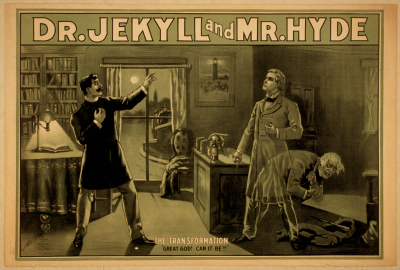
The APA (2004) released an article with the sub-title that read: ‘Psychologists find that opposites attract in couples with personality disorders(PD)’. Many people are aware of the idea that couples who have opposing characteristics will most likely be seen to “complete” each other and offer the complementary needed for this completion. However, it offers somewhat of a possible false sense of security in which to hold onto when you are with someone you completely cannot relate with. Wishful thinking? Maybe. It is also possible in some cases that people with opposing characteristics can have a good relationship, and it is probably because those opposing personality characteristics are not as pronounced enough to be a sizable factor that impacts the relationship. Nevertheless, it is important to understand that individuals with PDs can also have relationships, and that these same individuals tend to make even the most incompatible of relationships stick together somehow. This is because of the nature and type of PDs will tend to sustain the relationship.
Florida psychologist, Dr Florence Kaslow, saw the this pattern in people with PD is so often in couples that it is practically a clinical archetype; he says that both parties involved have PDs, but on opposite ends. For example, on one end you would have obsessive-compulsive PD who is immovable and perfectionist paired with the messy, careless attitude of the histrionic PD, or you can have the self-absorbed and self-aggrandizing narcissistic PD with the clingy, needy dependent PD(2004a). With 30 yrs plus experience, the Florida psychologist saw this as an all too common occurrence in relationships.
However, most of Kaslow’s suspicions here seem to be confirmed by a paper published in the American Journal of Psychotherapy (2002); in which narcissism PD’s severity and willingness to change can either maintain or break a relationship(Karasu, 2002). Kaslow explains that couples with PD see each other as “the other half”, they are often attracted to the thing they reject or have a negative attitude toward. Nevertheless, a distinction is made: most often, Kaslow and Marion Solomon, a Los Angeles-based psychologist, who co-wrote a book with Kaslow on the subject of relationship and couples treatment, state that individuals diagnosed with Cluster B (anti-social, borderline, histrionic, or narcissistic) tend to attract or be attracted to Cluster C (avoidant, dependent, or obsessive compulsive) PDs (2004a; see DSM).
In many PD relationships, the opposing characteristics in certain PDs will seek to compensate their deficiencies by another individual’s characteristics; for example, the histrionic’s need for stability will be curtailed by the OCD’s perfectionism. The relationship for the PDs will only serve as a means this compensative measure. That is where the problem lies in some cases. To shed further light, Dr Joan Lachkar, a Los Angeles practitioner, says that each partner stirs up unconscious, unresolved developmental issues in the significant other, and when this happens both partners become developmentally arrested, forming a pattern to which Lachkar calls “the dance”; which is prevalent in the narcissistic/borderline relationship (2004a).
Now when it comes to the problems in PD individuals relationships, one would think that individuals with PD have problems with coping with them. This is partially true. Because if it happens that the individual with PD has a problems in these specific relationships, they are unable to be flexible or find change to those problems. Which means they are more likely to repeat old patterns and stay stuck in them. To further more elaborate on this aspect, Art Freedman, a psychologist at the National Training Laboratory Institute for Applied Behavioral Science, said;
“They won’t try new things because, in part, they think: ‘This is what I need to do to survive’. For example, if someone with a personality disorder attempts to make friends and fails, he might decide his well-being depends on avoiding all human contact in the future” (p. 49)
Setbacks of these types can further reinforce the likelihood of problematic patterns repeating in the future. Over a period of time, such habits can become a cemented way of being and thus make harder for any positive change–or to bring resistance to the change from the patient in light of it. This is mainly because such a change would probably be viewed as a lifestyle change, which would take a degree of commitment and practice on behalf of the patient.
Conclusion
Many problems can arise for the PD individual; from his/her behavioral inflexibility and rigidness to the change and the self-maintaining of problematic behaviors if there are to be any. Intense and tumultuous relationships can become a frequent occurrence in the life of the PD individual. Without constructive efforts early on, many people can face the challenges in changing their views, their beliefs and, most importantly, lifestyles. Because of the inflexible nature of PDs, there will most likely be considerable resistance for the clinician to even begin an effective treatment. Many times people with PD, or undiagnosed PD, are not willing to seek treatment because of their rigid behaviors and myopic perspectives.
References:
Dingfelder, F. S. (2004b). Can Clinically Inflexible Learn to be Resilient?. Monitor on Psychology. Vol. 35(3), 49. Retrieved from http://www.apa.org/monitor/mar04/inflexible.aspx
Karasu, B. K. (2002). American Journal of Psychotherapy. Vol. 56(4)
Murray, B. (2004a). Mixing Oil and Water. Monitor on Psychology. Vol. 35(3), 52. Retrieved from http://www.apa.org/monitor/mar04/mixing.aspx
Your current post provides confirmed useful to
myself. It’s really useful and you’re naturally quite educated in this field. You possess opened my face in order to numerous views on this kind of subject using intriguing, notable and sound articles.
I can see you happen to be an expert at your field! I am launching a internet site soon, and your data will probably be quite fascinating for me.. Thanks for all your support and wishing you all of the success.
Pingback: Homepage·
Pingback: Upcoming Movies·
Pingback: http://bensonncnow.com/pligg/search.php?search=mirena+iud+lawsuit&tag=true·